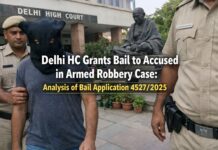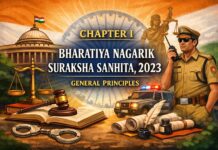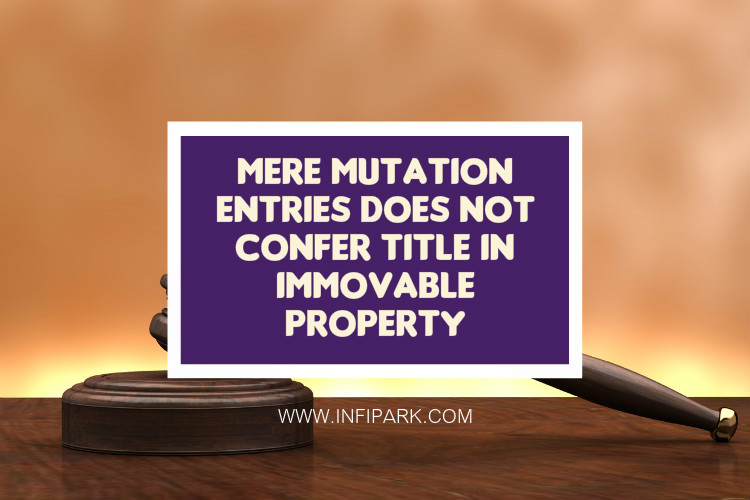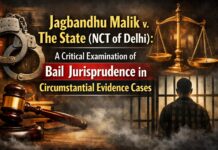PREM NATH KHANNA (THE APPELLANT NO. 1) ALONG WITH his mother Kaushalya Rani, vide sale deed dated 17.10.1996, purchased land measuring 41 Kanals 4 ‰ Marlas being 5/25th share of land measuring 206 Kanals 3 Marlas situated within the revenue estate of village Dhurala according to jamabandi for the year 1960-1961. Prior to the execution of the said sale deed, the land in question had been leased to the respondent No. 1 herein, Narinder Nath Kapoor (since deceased) for 20 years from 1966 to 1986. In addition to the above- mentioned land, the mother of the appellant no. 1 had also purchased land measuring 79 Kanals 12 Marlas, which amounted to 3/4th share of land measuring 106 Kanals 3 Marlas situated within the revenue estate of village Dhurala, Tehsil Thanesar, District, Kurukshetra (according to jamabandi for the year 1960-61) vide sale deed dated 7.1.1967 which was also leased by its previous owners to respondent no. 1 for the period of 20 years i.e. 1967 to 1987 vide lease deed dated 6.1.1967.
After the death of the mother of appellant no. 1 respondent no. 1 filed Civil Suit No. 655 of 1987 before learned Senior Sub Judge, Kurukshetra against the previous owners of the suit property i.e. Kewal Krishan and Rajinder Krishan for declaration that he is the owner in possession of the suit property. The learned Sub-Judge decreed the suit ex-parte in favour of the respondent no. 1 vide judgement and order dated 10.2.1988.
Aggrieved of the aforementioned ex-parte decree, the appellants filed Suit No. 133/2002 of 1990 for declaration of title and joint possession over the said suit property as well as declaration to the effect that the judgement and order passed in the Civil Suit No. 655 of 1987 is not binding upon the appellants as the defendants therein Kewal Krishan and Rajinder Krishan were no more the owners of the suit land as the same had been purchased by them vide registered sale deeds dated 17.10.1966 and 7.1.1967.
The Civil Suit No. 133/2002 of 1990 was dismissed by learned Civil Judge (Sr. Divn.), Kurukshetra vide order dated 20.8.2002. The learned Civil Judge held that there was no valid and cogent reason to declare the judgement and order dated 10.2.1988 as illegal, null and void and that the plaintiff-appellants were not entitled for the relief of joint possession whatsoever. It was further held that respondent No. 1 had perfected his titled over the suit land by prescription and adverse possession.
Aggrieved of the aforementioned judgement and order, the appellant filed Civil Appeal No. 16 of 2002/ 2004 before theAdditional District Judge challenging the correctness of the same. The learned Additional District Judge allowed the appeal vide judgement and order dated 31.3.2005 and held that respondent no. 1 cannot be held to have acquired legal right to claim ownership over the suit property by pleading adverse possession, as mere mutation entry in his name in the record does not create or confer title in the immoveable property.
Thereafter, respondent no. 1 filed Regular Second Appeal No. 1661 of 2005 before the High Court of Punjab and Haryana at Chandigarh against the said order. Vide judgement and order dated 20.7.2009, the High Court allowed the appeal and set aside the judgement and order passed by the first appellate court. The High Court held as under:
In this case also, neither the possession was delivered to the plaintiffs not it was promised that it would ever be delivered to them. The argument that no evidence could be led to prove the nature of the document except the contents thereof, cannot be sustained as it is well settled that the plea that title has not passed on the execution of the sale deed can be raised from the contents of the document and intention of the parties behind the execution of the document which could be gathered from the recitals in the document and from other attending circumstances brought on record i.e. circumstantial evidence, conduct of the parties and inconsistencies in the recitals of the document. After examining the entire evidence, the contents of the documents and other intrinsic evidence, it is open for the court to infer that the contents of the document intended not to transfer title. This is what the lower appellate court has done and it fell in error in touching the issue of sham transaction and proceeded on the assumption that since the sale deeds were admitted to have been executed, therefore, the plaintiffs are the owners.
Against the judgement of the High Court special leave petition was filed. The Supreme Court accepted the appeal, set aside the impugned judgement and order passed by the High Court. The judgement and order of the 1st appellate court was restored.
The operative part of the judgement read as under :
Insofar as the issue no. 1 is concerned, we are of the opinion that the High Court has erred in reversing the judgement and order passed by the first appellate court. The High Court should have noticed that the plaintiffs/appellants are the owners of the suit land by way of registered sale deed. The non-application of mind on the part of the High Court on the aforesaid vital aspect of the case is erroneous in law as it is not based on the correct appreciation of facts and evidence on record.
********************************
As far as issue no. 2 is concerned, respondent No. 1 has no right to claim ownership over the suit property on the ground of adverse possession by taking a plea of sham transaction. This plea of the respondent is not only prohibited by the Benami Transactions (Prohibition) Act, 1988, but makes the appellants absolute owner.
********************************
At the outset, it would be pertinent to mention that the controversy in the instant case is based essentially on the documentary evidence produced on behalf of the parties. It is also worthwhile to mention in this judgement that in the Written Statement, the deceased respondent no. 1 did not mention the fact of his having been previously inducted as lessee on the suit land by the previous owners vide lease deed dated 6.1.1967 which had taken place prior to the execution of the two sale-deeds dated 17.10.1966 and 7.1.1967 in favour of appellant no. 1 and his mother Kaushalya Rani.
********************************
Authorities relied upon : 1996 (6) SCC 223,AIR 1963 SC 1558.
Reference : Supreme Court. Prem Nath Khanna & Ors. v. Narinder Nath Kapoor (Dead) Through LRs & Ors.






![Maneka Gandhi v. Union of India [1978] 2 SCR 621: A Watershed Moment in Indian Constitutional Jurisprudence](https://www.infipark.com/articles/wp-content/uploads/2026/02/Image-Feb-18-2026-10_47_59-AM-218x150.jpg)











